The iconic folk artist pays us a quick visit to talk about her new album and her love for Joni Mitchell
Making her name during the folk music boom of the 1960s, Judy Collins is a singer who has proven herself equally skilled at interpreting the songs of her peers, such as Joni Mitchell and Leonard Cohen, as she is at writing her own tunes. Ever since her debut album, 1961’s A Maid Of Constant Sorrow, she has also reimagined many traditional compositions, creating a clear line of ancestry from these roots through her own career.
A prolific writer, not just of songs but of poems, novels and memoirs, her latest offering is a collaboration with the Norwegian folk artist Jonas Fjeld and the acclaimed bluegrass outfit Chatham County Line. Together they have made Winter Stories, an album in celebrating of the season which contains re-workings of two of Collins’ songs, The Blizzard and Mountain Girl. Wrapped up against the elements, we got the lowdown from the legendary singer and activist…
How did you end up working with Jonas and the Chatham County Line and what made you want to make a winter album?
“It seemed to be perfect. I’ve written a lot of seasonal songs, including of course The Blizzard and I wanted to record Joni Mitchell’s song The River, so it all made sense. Chatham County Line are so brilliant and Jonas Fjeld had written a wonderful song that I wanted to record, so I was very happy to find them and they’re brilliant. I think they’re some of the best bluegrass players in the world, they’re very big in England and Jonas had recorded with them before, so it was a true pleasure.”
How did you go about choosing the tracks for the album?
“I think that I started with the idea that we had to record Northwest Passage, the great Stan Rogers song, which is the story of John Franklin, it’s really an anthem practically in Canada. I knew that I had to sing it and they were the perfect group to sing it with. That led me then to think about The Blizzard and Jonas’ song and how would it be to put a group of songs together about the season rather than just Christmas.”
Was it an enjoyable album to make?
“It was great. Chatham County Line are just brilliant players and it’s interesting because bluegrass, country and folk are all in the same family. I think most of the songs that we’re listening to in the country series that is on television now [PBS’ Country Music], and my own experience with folk music, we have to thank the English, Irish and Scottish for the background of these songs and so Northwest Passage, for instance, has that ring of antiquity of the old music that gets you going when you hear it.”
Were you all together in the studio?
“We met up, I guess it was in Raleigh, and we just sat together in a room and played – about a year ago now – and we thought, ‘Well, we can sing and play very well together.’ We went into the studio in Asheville, North Carolina, in February this past year and went into a studio called Echo Mountain and this was a fully live recording.
“We all were together, we were there for five days, we did all the songs, recorded all the vocals and then the tracks were mixed in New York. We’ve already had a debut together in Colorado in Alamosa, we sang on a stage there in the mountains in June. So now we’re going to start singing in concerts in the United States and then come over there.”
What is it about Jonas and his songwriting that appeals to you?
“I’ve known him for a long time, he’s had a lot of hits in Europe and in Norway and Sweden. He and I recorded one of his songs together a number of years ago. He’s very musical and he chooses his lyrics and his melody beautifully. So I felt that I resonated with his work and with the Chatham County Line there was something added that was very special and unusual.”
Both Sides Now is another Joni Mitchell song you’ve had great success with. Why does her music grab you and make you want to interpret it in your way?
“One night in 1967 I was sound asleep in my apartment in New York on the Upper West Side. I had no idea who Joni Mitchell was, I had heard a song of hers that was recorded by Tom Rush but she was one of many trying to get noticed in the Village so I didn’t really understand who she was and what she doing. But I got a call at three in the morning from my friend Al Kooper who started Blood Sweat & Tears.
“I answered the phone, we didn’t have caller ID then, and he said, ‘This is Al,’ and I said ‘Why are you calling me in the middle of the night?’ and he said, ‘I think you’re going to appreciate my phone call,’ and then he put Joni Mitchell on the phone and she sang me Both Sides Now. I immediately said, ‘I’ll be right over because I have to record that song.’ That began a romance with Joni’s music. I think she’s brilliant. I’ve recorded a number of her songs including Michael From Mountains and Chelsea Morning. Having a chance to record River was wonderful.”
You chose not to write any new songs for this album…
“Not for this one. My next album is going to be called Resistance And Beauty and it’s all my own songs and that will probably come out in March or April of 2020.”
Are you still a prolific writer or do you go through peaks and troughs?
“I do write prolifically and one of my latest songs is out there and can be downloaded. It’s called Dreamers and it’s a song about immigration, which we have a huge issue with here; but it’s not just the United States, where all of us are immigrants, but it’s everybody apparently in the world.”
Do you have a set songwriting method?
“I try to work at it regularly so that it’s a little bit like laying pipe. You just do it every day and keep track of what you’re doing and then you put the pieces together like a jigsaw puzzle. Every once in a while a total song comes out in one piece – which is why you sit there every day and keep working at it. So that when it does come you’ll be ready to catch it.”
Have there been times when that hasn’t been the case and you’ve struggled to write?
“I don’t believe writer’s block is really part of it, I think there are times when you are not practising every day and so you’re out of the loop but, in my own experience, mostly it means sitting down without the telephone and without people interrupting you, and focussing. That seems to be the key.
“Also, I do keep a notebook and I do note down things that people say that I know I might want to use in a song. That goes on always. I think most people who are involved in writing, songs or poetry, are used to keeping notebooks in their purses or their pockets. You have to keep it going in one way or the other all the time.”
What compels you to keep doing that?
“Because I’m an artist and that’s what I have to do to stay alive. I don’t know why I’d stop. I didn’t write songs until I was 27 or 28 and I only wrote it because Leonard Cohen said to me, after I had recorded Suzanne and made him famous, ‘I want you to keep recording my songs,’ which I have of course, but he said, ‘I don’t understand why you’re not writing your own songs.’ So I started to do that and have been doing it ever since.
“I was always writing journals, which I think helps, and I’m back to doing my journaling again. Sometimes you stop for some time, for whatever reason, but that’s also something that keeps things going. When I wrote The Blizzard, which is on this album, I had been writing my first big memoir. It was that year or the next year that I wrote The Blizzard. And I do think the conversation between writing prose and writing songs has always been helpful to me. I’ve written 10 books and I do find that they interchange.”
Judy Collins’ latest album Winter Stories is out now. For the latest info, head to judycollins.com

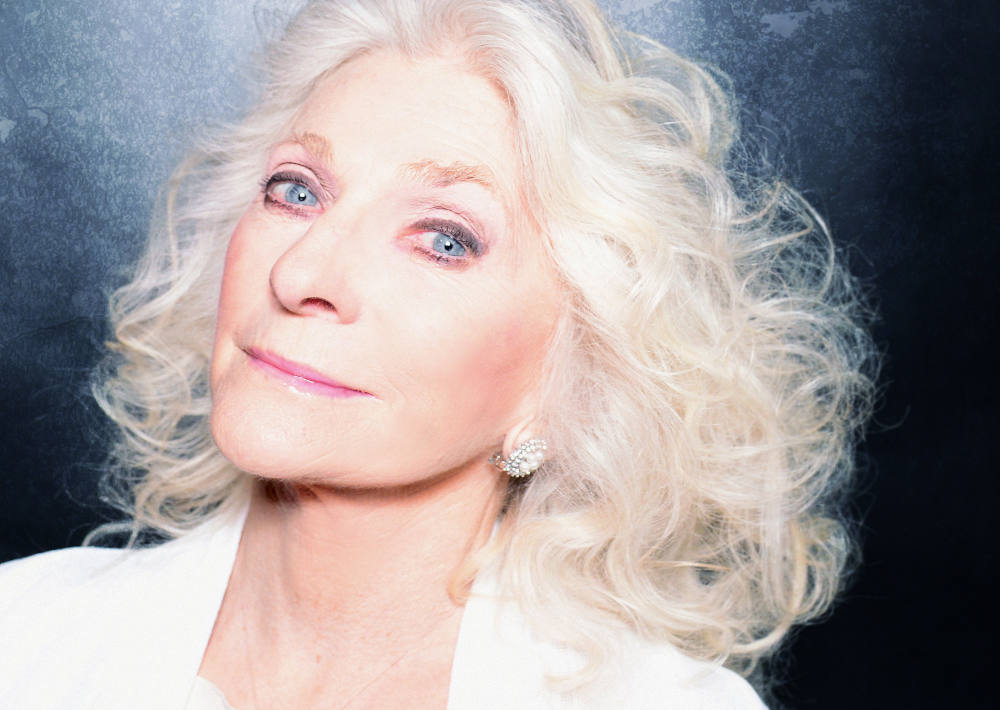


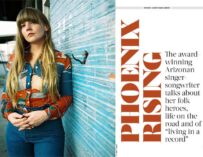
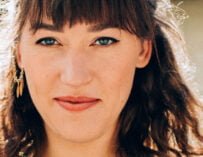

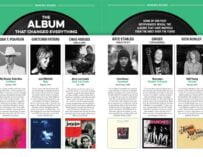



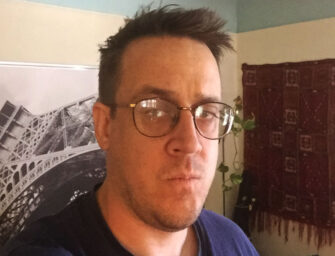

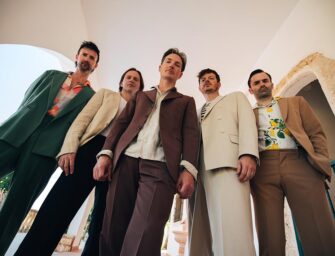























Related Articles